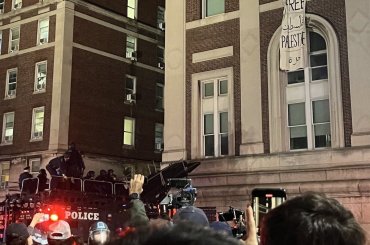Everything’s falling apart this morning. What a beautiful day, we’re going to try and pick up the pieces all this week. The Palestine Papers are transforming the landscape, and showing that realists and leftists have had far greater insight into the region than the neocons and liberal hawks– for years now.
How can the peace process survive this 2008 statement from Saeb Erekat, and maintain any pretense that it could deliver a just and lasting peace?
SE: It is no secret that on our map we proposed we are offering you the biggest Yerushalayim in history.
“These are not settlements,” the Israeli negotiator insists here, in a borders conversation. Who was he fooling?
Another friend explains, “I would just like you to keep one thought in mind – for years we have been told that everyone knows the terms of a peace agreement, the problem was how to get there. Even the initial drop of documents shows this to be a big lie. Neither the Israelis, the US, nor even the Palestinian negotiators believed that the solution would be based on the Clinton parameters. The Israelis made it clear in the talks that they had created new facts on the ground that now had to be accommodated. That we were so lied to by so many so-called moderates for so many years is chilling.”
Again I’m reminded of Michael Walzer’s statement about the North Carolina black “resistance” in 1960: If we negotiate with you right now, our grandchildren won’t be able to sit at the lunch counter! He was talking about the power imbalance, which is reflected in Erekat’s craven statement. Imagine trying to negotiate with the Palestinians without taking Hamas into account. It’s anti-democratic, it can’t last.
Writes Darryl Li, “After the Palestine Papers from Al Jazeera, and missing the Tunisia story, someone should tell the NYT that it’s official: when it comes to the middle east they officially do not matter as a source of info anymore.”
And here, re power balance and Islamic movements, is Robert Grenier at Al Jazeera 3 weeks ago, speaking of the neocon wisdom of supporting Arab dictators as a means of suppressing the Arab street. I wonder how much of our bad policy in the Middle East has been driven by the Israel lobby, how many of our conventional ideas of the last 20 years have arisen from mistrust of Arabs:
“Regimes that fight, survive.”
The words were those of a senior member of the Washington Institute for Near East Policy (WINEP), the “house” think-tank of AIPAC, the pro-Israel US lobbying organisation. Spoken at a scholarly conference in 1992, they were meant as a reproach to people like me, who argued that an ageing generation of autocratic leaders in the Middle East risked facilitating the rise of a wave of violent, anti-democratic Islamists unless they were willing to accommodate the aspirations of the seemingly more democratically-inclined Islamists in their midst…
WINEP, then as now, was generally representative of right-leaning political opinion in Israel, and this case was no exception. One of the more influential voices from that quarter belonged to Binyamin Netanyahu, who argued at the time that there was a clear alignment of interests between Israel and the secular regimes of the surrounding Arab states.

